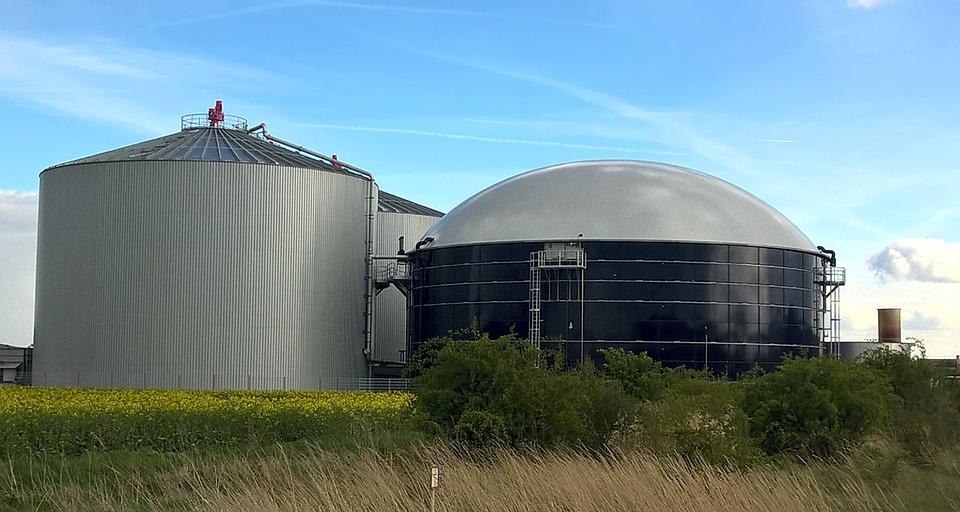Bioenergy

Bioenergy — the generation of energy from biological sources such as plants, organic waste, and algae — plays a crucial role in the UK’s transition to a sustainable, low-carbon future. As part of the broader bioeconomy, which encompasses the production of renewable biological resources and their conversion into food, materials, and energy, bioenergy represents both an economic and environmental opportunity.
In the UK, bioenergy is already a significant contributor to renewable energy supply, supporting national targets for carbon reduction and energy security. It provides a versatile energy source — capable of generating heat, electricity, and transport fuels. Moreover, bioenergy can play a strategic role in helping hard-to-decarbonise sectors, such as aviation and heavy industry, move towards net zero. By aligning with circular economy principles and advancing technologies like carbon capture and storage (BECCS — Bioenergy with Carbon Capture and Storage), bioenergy not only reduces emissions but has the potential to deliver negative emissions.
As the UK strengthens its commitment to clean growth and energy independence, bioenergy stands as a key pillar of the bioeconomy — fostering innovation, investment, and sustainable prosperity across the nation.

Biomass Derived Power
Biomass use in electricity generation has seen significant uptake over the past two decades, supported by renewable energy incentives, such as the Renewables Obligation (RO), Contracts for Difference (CfD) and the Feed-in-Tariff (FIT) mechanisms.
Biomass power generation has the advantage over other renewables, such as solar and wind, by providing baseload or dispatchable generation from domestic or imported low-carbon feedstocks, delivering low-carbon, renewable electricity whilst also supporting energy security ambitions.
Looking ahead, Bioenergy with Carbon Capture and Storage (BECCS) will continue to play an important role in providing either dispatchable or baseload power, complementing the variability of other renewables.

Biomass Heat
The use of biomass in heat generation has increased in recent years, supported by the Domestic and Non-Domestic Renewable Heat Incentive (RHI) mechanisms.
Biomass has a role in decarbonising off-grid properties as well as certain industrial processes, where other local-carbon alternatives are not well-suited. Biomass in the form of wood, waste and agricultural residues can be used as direct replacements to fossil-derived solid and liquid fuels, in the form of pellets, chips, bales, oils or gases, for example.
In the UK, biomass is also widely used to generate biogas or biomethane for direct heat production or injection into the gas grid, respectively. Biomethane is a direct replacement for natural gas and can easily be conveyed through the existing gas grid, playing an important role in optimising the path to net zero and increasing energy security. Further detail on Biomethane in the UK is provided here.
Hydrogen can also be produced from biomass feedstocks via a number of production routes, and will be useful for decarbonising the wider energy system in the future. Significant development and commercialisation efforts are underway, supported by Government and aligned with the UK Low Carbon Hydrogen Standard.
Alder BioInsights Support
Alder BioInsights supports developers, investors and policy makers with interests in the bioenergy sector to strategically plan and develop robust supply chains, maximising returns from the complex matrix of financial incentives that are available whilst also ensuring sustainability criteria are met.
Enquiry Form
Here at Alder BioInsights we take your privacy seriously, your information will not be added to our contacts list. Should you wish to be kept up to date with bioeconomy developments please subscribe to our mailing list.
Contact Us
Biocentre
York Science Park
Innovation Way
York,
YO10 5NY
United Kingdom
Other Sectors
With an expert understanding of the unique challenges the bioeconomy can present, our team can support you to navigate the complexities of these dynamic sectors with confidence.
Irish AD Deployment
Anaerobic digestion plays a vital role in waste management and renewable energy, turning organic materials into biogas and valuable by-products
UK AD Deployment
Anaerobic digestion plays a vital role in waste management and renewable energy, turning organic materials into biogas and valuable by-products
Biofuel
Biofuels play a crucial role in decarbonising transport and reducing reliance on fossil fuels.
Biobased Chemicals
Biobased chemicals are transforming industries by offering sustainable, low-carbon alternatives to fossil-based products.
Anaerobic Digestion
Anaerobic digestion plays a vital role in waste management and renewable energy, turning organic materials into biogas and valuable by-products
Biobased Materials
Biobased materials are driving the shift to a sustainable, circular economy by replacing fossil-derived alternatives
Feedstock
Reliable and sustainable feedstock supply is the foundation of the bioeconomy.


